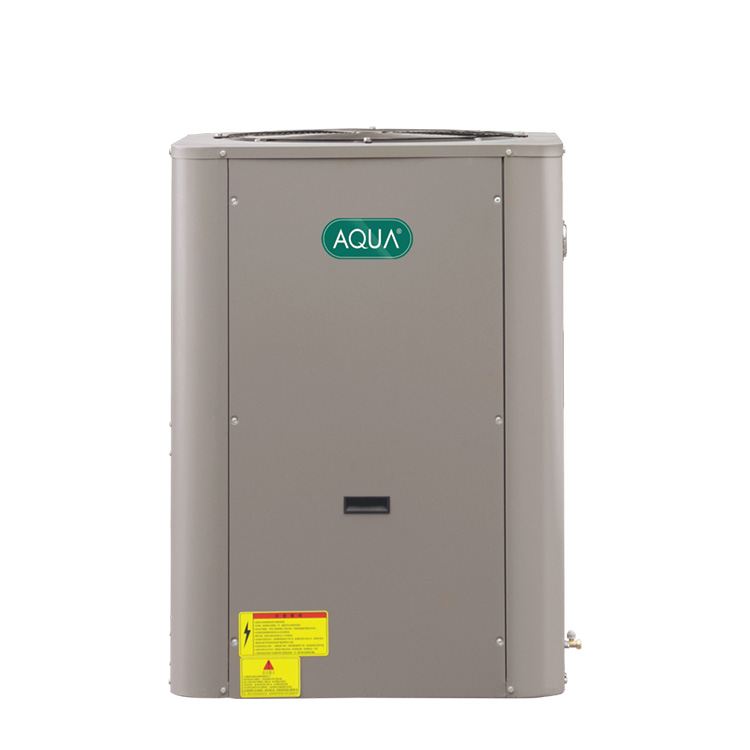Indoor swimming pools are different from open-air swimming pools. Indoor swimming pools are heated swimming pools. The national standard swimming pool water temperature is between 22℃-26℃, if it is a competition, the temperature will be lower. It is well known that the body temperature of the human body is 37°C, so there is a temperature difference of 10°C between this, and it will naturally feel cold.
So here comes the question:
Since it is a constant temperature swimming pool, the temperature can be adjusted through the swimming pool constant temperature heat pump
Why can't the temperature be adjusted higher?

2. Training swimming pool: 25-27 degrees Celsius
3. Diving pool: 26-28 degrees Celsius
4. Children's swimming pool: 24-29 degrees Celsius
Note: For swimming pools attached to hotels, schools, clubs, and villas, the water temperature of the pool can be designed according to the value of the training pool water temperature.
So why can't the temperature of a heated swimming pool be increased? Kiyea company will answer this question in detail! In fact, if the temperature is lowered, there are many benefits...
1. Hot and cold relaxation, blood vessel contraction
When you first enter the water, water below body temperature will constrict the blood vessels of the skin to reduce heat dissipation. After exercising, the heat generated by the exercise will be released and the blood vessels of the skin will expand. This shrinks one, so that the cardiovascular system that is not usually exercised can also exercise. This is a good exercise to prevent cardiovascular diseases. .
In addition, when cold, blood vessels in the skin constrict and blood flows back to vital organs-such as the brain-to protect them from harm. When it is hot, the blood vessels of the skin expand and the blood stays on the surface of the body more, and the blood flow of those vital organs will naturally decrease. The brain’s nutrition and oxygen are insufficient, so how can it react quickly? Naturally it feels chaotic.
2. Make muscles stronger
Recall the scene of taking a bath. The big bathtub was filled with hot water, and I slowly lay down. The warm water immediately covered the whole body, unspeakably comfortable and comfortable, and the limbs became soft. The same is true for swimming pools. Do you still have the mood to swim in it? Cold water can help muscles contract and keep the whole body in a tight state, so that you can exercise in the water with full strength. At the same time, exercise in cold water is not easy to fatigue, and you will feel relaxed after swimming. Isn't it better than hot water?
3. Exercise cardiovascular
In addition to contracting muscles, low temperature can also constrict blood vessels in the skin to reduce heat dissipation. After starting to swim, the heat generated by the exercise will be discharged, so the blood vessels in the skin will expand again. With such relaxation and relaxation, the cardiovascular system, which is not usually exercised, will also move! This has a very good effect on preventing cardiovascular diseases!
4. Prevent fatal swimming heatstroke
If the water temperature is adjusted to 30 degrees, it will not be able to swim at all. After trying a pool with a temperature of 29 degrees, people will start to lose energy after swimming 200 meters. In addition, swimming in warm water is inherently more tiring and requires more energy. The heat brought by consuming more energy cannot be taken away by warm water, which causes the body temperature to rise all the way. In order to dissipate heat, the blood vessels of the skin become more dilated, resulting in insufficient blood supply to the vital organs in the body.
At the same time, in order to cool down the human body will sweat a lot, it is hoped that the sweat will evaporate to take away more heat and achieve the purpose of cooling down. However, swimming in warm water not only fails to complete this task, but also causes dehydration of the body.
Body temperature cannot be adjusted, dehydration, heat stroke is likely to occur (not only in summer, "fainting" often occurs in a hot bath is also heat stroke), this is a very fatal emergency, prone to abnormal heart function , Unconsciousness and difficulty breathing. It is critical that these situations happen on land, and it is even more dangerous in the water. Do you know this now? Next time you go swimming, don't complain that the water in the pool is too cold. The water temperature is not adjusted according to your mood, but set for everyone to have a better swimming performance!



